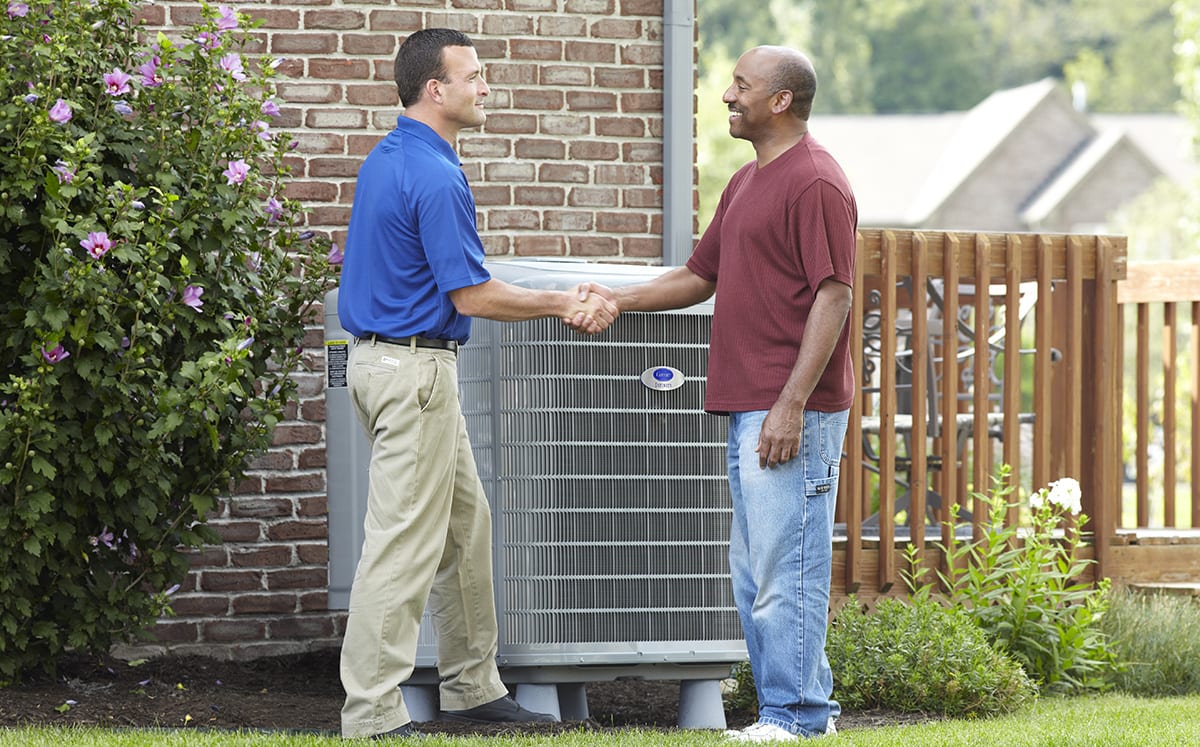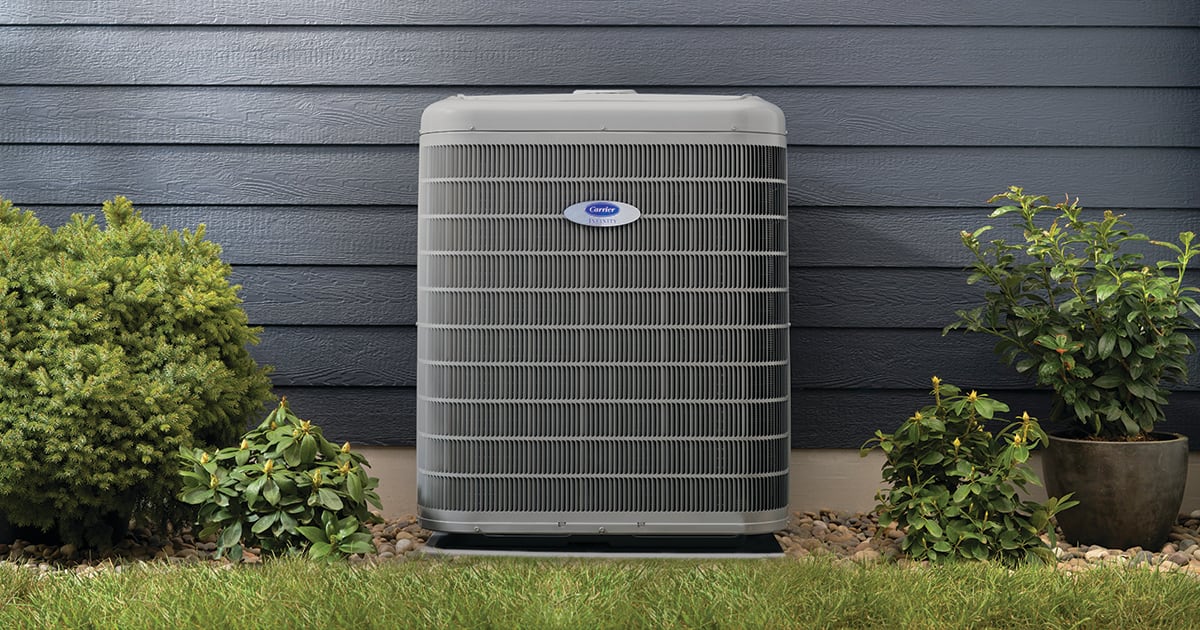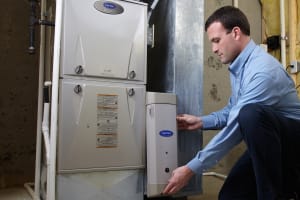How Long Do AC Units Last?
Whether it’s while searching for a new air conditioning unit... or when an issue comes up with their current cooling system...most homeowners invariably ask the question, “How long do air conditioners last?” And while most major HVAC manufacturers like Carrier spend a lot of time testing and enhancing their AC units for lasting reliability, the answer can be complicated.
How Long Do AC Units Last?
It would be great if we could give you a definitive answer for how long do AC units last like 25 years, but realistically, air conditioner life expectancy will vary greatly for a number of reasons. Starting with the quality of the unit and the work performed by the AC installation technician, to your climate and comfort preferences, to how well or poorly the system is maintained, there are quite a few variables that can either help prolong the life of your system or cut it short. And when a major issue presents itself, the decision to repair or replace the air conditioner can add years of comfort with a major component replacement... or cut the lifespan short if you opt for an AC replacement with brand new equipment.
All of these factors and more can play a role in either extending... or reducing the life expectancy of your split system air conditioner. While every unit is different, and every homeowner has a different understanding of when their central air conditioner is broken beyond repair, it’s fair to say that, with proper maintenance and care, you can expect a good 15 to 20 years of cooling from a new high efficiency air conditioning system.
Factors Impacting How Long Do Air Conditioners Last
Any discussion about how long do AC units last should include the question: when is its useful life officially over? Like your family car, HVAC systems will need some TLC – regular AC tune ups and minor AC service and parts replacement. One homeowner might think that the first time a unit quits running and is no longer under warranty, it’s time for a new one. Another might consider making a number of repairs, even at great expense, to keep an existing system running. So the repair or replacement issue plays a role in determining the life of the AC unit.
Beyond that, factors that play into the lifespan of air conditioners include:
- Installation quality and proper sizing
- Personal comfort preferences, thermostat settings, and system wear and tear
- Climate issues such as high humidity
- Air quality issues such as salty sea air or other airborne corrosives
- Regular AC maintenance
Rate of Use
A better question might be, “how long do air conditioners last in your part of the country?” An air conditioner that is used more than average will naturally experience a greater amount of wear and tear compared to a unit that is used more moderately. For example, take two identical air conditioners and install them in two different areas of the country. An AC system in a northern climate with moderately warm summers will probably accumulate fewer hours in service and fewer start/stop cycles than a unit installed in a warmer and more humid climate. Personal preference can make a difference as well. If one family keeps its thermostat set at 70⁰ F all summer long, that air conditioning system will likely run a lot more frequently than the family across the street that keeps their thermostat set at 78⁰ F. Learn about the best temperature for AC. Take either of those examples over 15 years, with similar maintenance schedules, and that difference in usage is magnified.
Level of Upkeep
Like any other piece of equipment, your air conditioner can last longer with a little TLC. For example, when was the last time a licensed HVAC technician came out for an AC system tune-up? Have you inspected or replaced the system’s air filter on a regular basis? Do you keep the outdoor unit free from leaves, mulch, dirt or other debris? Your answers to these questions might give you a hint as to how well you are maintaining your air conditioning system and how long your air conditioner might last.

As you would expect, regular maintenance is recommended to help extend the energy efficiency and lifespan of your cooling system. Most homeowners can inspect and clean or replace an air filter. But an HVAC professional will dig deeper with regular tune-ups. They can clean and inspect components like the compressor, evaporator coil, condenser coil, fan and motor assemblies, and condensate drains. And, they can make adjustments and minor repairs that can improve performance and potentially help prevent bigger issues and a higher repair cost down the road.
Exposure to the Elements
Because the condensing unit of a HVAC system sits outside, it is exposed to the elements, all year long. And depending on your climate and the air quality in your area, it might really take a beating out there. For example, if you live near a coast, salty sea air can take a toll on the condensing coil in the outdoor unit. And while your air conditioner was designed to withstand the elements, it’s no secret that the amount of time it remains exposed and the severity of the conditions can affect how long your AC unit lasts.
To protect and help extend the life of your outdoor AC unit, have the AC coil cleaned regularly to keep dirt and potentially corrosive debris from accumulating. Physically remove leaves, pine needles, mulch, trash or any other items that may be accumulating around the unit and trapping unwanted moisture inside. If you live in a coastal area, some manufacturers like Carrier offer units specifically designed to better withstand the rigors of salty, corrosive air.
Some homeowners will purchase an AC unit cover to protect it during the winter months when it is not in use. While it may seem like a good idea, it is a risky venture. Plastic covers can trap moisture, mold and mildew inside and can actually do more harm by encouraging rust and corrosion. If you do choose to cover your outdoor unit, be sure to select a cover made from a breathable material that won’t trap moisture, mold and mildew inside. Or, cover only the top of the unit which will allow airflow through the sides.
Frequently Asked Questions About How Long Do AC Units Last
Learn More About AC Units
- How do air conditioners work?
- Asking yourself, “What size air conditioner do I need?”
- Need help with AC Fan Not Working?”
- Common reasons for Air Conditioner Not Cooling
- Troubleshoot an Air Conditioner tips
- Learn How Often to Change AC Filter





